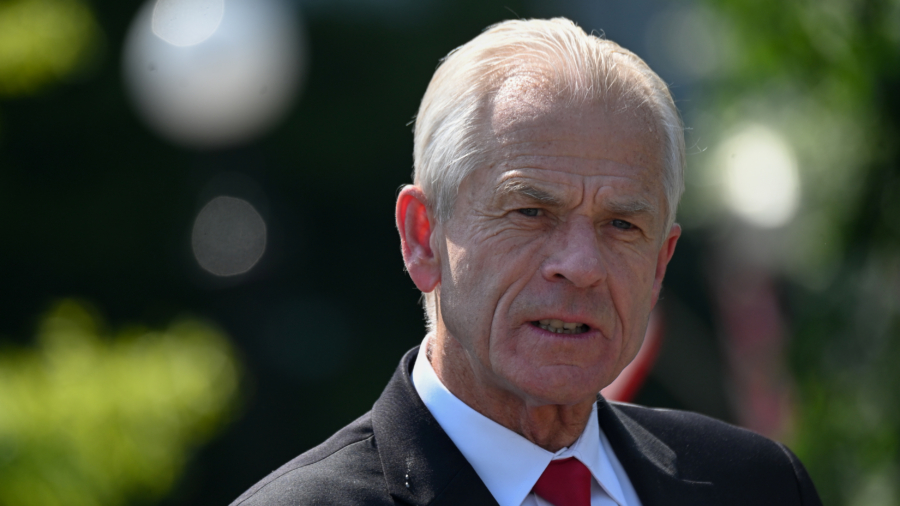A federal judge in the District of Columbia has ordered former President Donald Trump’s former trade and political adviser Peter Navarro to turn over hundreds of emails from a private email account that related to his official work.
In August 2022, the U.S. Department of Justice (DOJ) filed a civil claim (pdf) against Navarro, alleging copies of emails he held on a private email account should have been turned over to the National Archives and Records Administration (NARA) at the conclusion of Trump’s time in office. The government specifically argued Navarro’s work-related communications fell under the Presidential Records Act (PRA), whether or not they were stored on a private or official email account.
Navarro’s attorneys identified between 200 and 250 emails on his encrypted personal Proton Mail account that matched search terms for documents NARA had requested and likely pertained specifically to Navarro’s work in the Trump administration.
Navarro’s lawyers contended that the records-sharing requirements only pertained to work-related communications he sent, rather than emails he received. U.S. District Court Judge Colleen Kollar-Kotelly rejected those arguments in an opinion on Thursday, writing that the PRA requirements encompass all communications, sent or received by the president or his advisers.
“All the emails in Dr. Navarro’s personal email account, whether created or received, are therefore subject to being assessed as potential presidential records if they arose out of his employment in the administration,” wrote Kollar-Kottelly, a Clinton appointee.
Kollar-Kottelly ordered Navarro to immediately turn over the 200 to 250 emails his legal team found that pertained to NARA’s requests for documents. The judge also ordered Navarro’s legal team and government lawyers to decide on a protocol for reviewing other emails stored in Navarro’s personal account, to see if they include communications covered under the PRA.
Navarro’s Criminal Contempt Case
The dispute over Navarro’s emails overlaps with a criminal case involving the former Trump adviser.
The DOJ brought charges for contempt of Congress against Navarro in June 2022 after he declined to cooperate with a subpoena from the now-defunct House committee to investigate the Jan. 6, 2021, breach of the U.S. Capitol.
In its subpoena, the Jan. 6 committee alleged Navarro has information “directly relevant to the Select Committee’s investigation into the causes of the January 6th attack on the Capitol.” Specifically, the committee argued Navarro played a key role in preparing a report that discussed strategies then-President Donald Trump and his political allies could pursue in their efforts to challenge the certification of the 2020 election results.
Navarro had cited Trump’s executive privilege claims in his decision not to comply with subpoenas issued by the Democrat-controlled committee.
In Navarro’s defense, Harvard professor emeritus and constitutional law scholar Alan Dershowitz argued Congress and the DOJ should have sought a judicial ruling over Navarro’s privilege claims and given him subsequent time to comply with the subpoena if that judicial ruling rejected the privilege claims.
Navarro pleaded “not guilty” to the contempt charges and rejected a plea offer from the DOJ in July 2022.
In January, the federal judge overseeing Navarro’s criminal case agreed to delay the trial while both sides sought to further assess the executive privilege issues Navarro had claimed.
During this civil case over Navarro’s personal emails, Navarro’s legal team argued that he should not be compelled to turn over his emails now because the DOJ might in turn use those communications against him in his criminal case, violating his Fifth Amendment right to protection against self-incrimination. Kollar-Kotelly rejected this argument, writing that “producing these preexisting records in no way implicates a compelled testimonial communication that is incriminating.”
Navarro faces up to a year in prison or fines of up to $100,000 or both if he is convicted of contempt of Congress.

